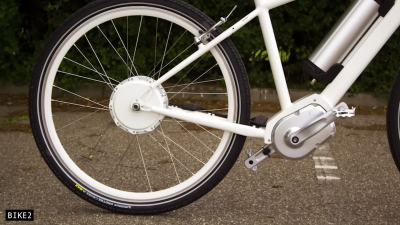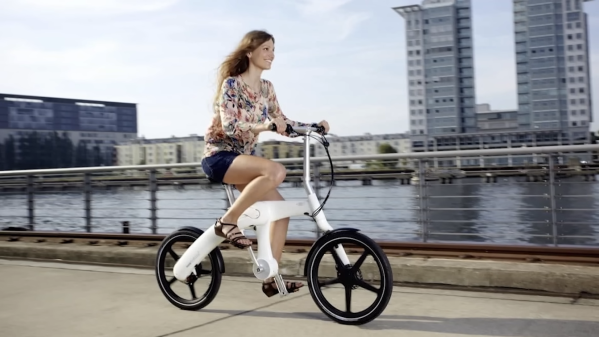We’re all familiar with how regular bikes work, with the pedals connected to the rear wheel via a simple chain drive. This setup is lightweight, cheap, and highly efficient. It’s not the only way to drive a bike though, and there’s plenty of buzz around the concept of “digital drive” bikes.

These drivetrains rely on electrical methods to transfer power in place of mechanical. The pedals are used to turn an electric generator, with power then sent to an electric motor which drives the rear wheel. The concept may sound overly complicated, but it does offer some benefits. The generator can change its operation to keep the rider pedalling at their most efficient, consistent rate. There would also be no chain to fall off, get snagged on clothing, or require regular maintenance.
It would make integrating regenerative braking possible, too, allowing the bike to harvest energy when going downhill too. This could be achieved with a storage battery or supercapacitor. As a bonus, it would be very easy to integrate power assist for the rider when tackling tough hills, for example. The lack of requirement for direct mechanical power transfer also means that there’s far more flexibility to design a bike with interesting geometry.
Such drive systems do give up some efficiency, however. All the power conversions between mechanical and electrical energy mean that a “digital drive” would likely only be 58% efficient. This compares poorly to the roughly 95% efficiency of power transfer in regular mechanically-driven bikes. There’s also a weight penalty, too.
Presnetly, there’s only one “digital drive” bike on the market – known as the Mando Footloose. It’s a swooping, folding, futuristic design, that has some feel issues when it comes to pedalling. And, given the added complexity and expense of these systems, it’s unlikely regular bikes or e-bikes are going away any time soon. Regardless, it’s fun to think about the potential for other drivetrain concepts to change the way we cycle. Video after the break.
Continue reading “Chainless “Digital Drive” Bikes Use Electric Power Transmission Instead”











